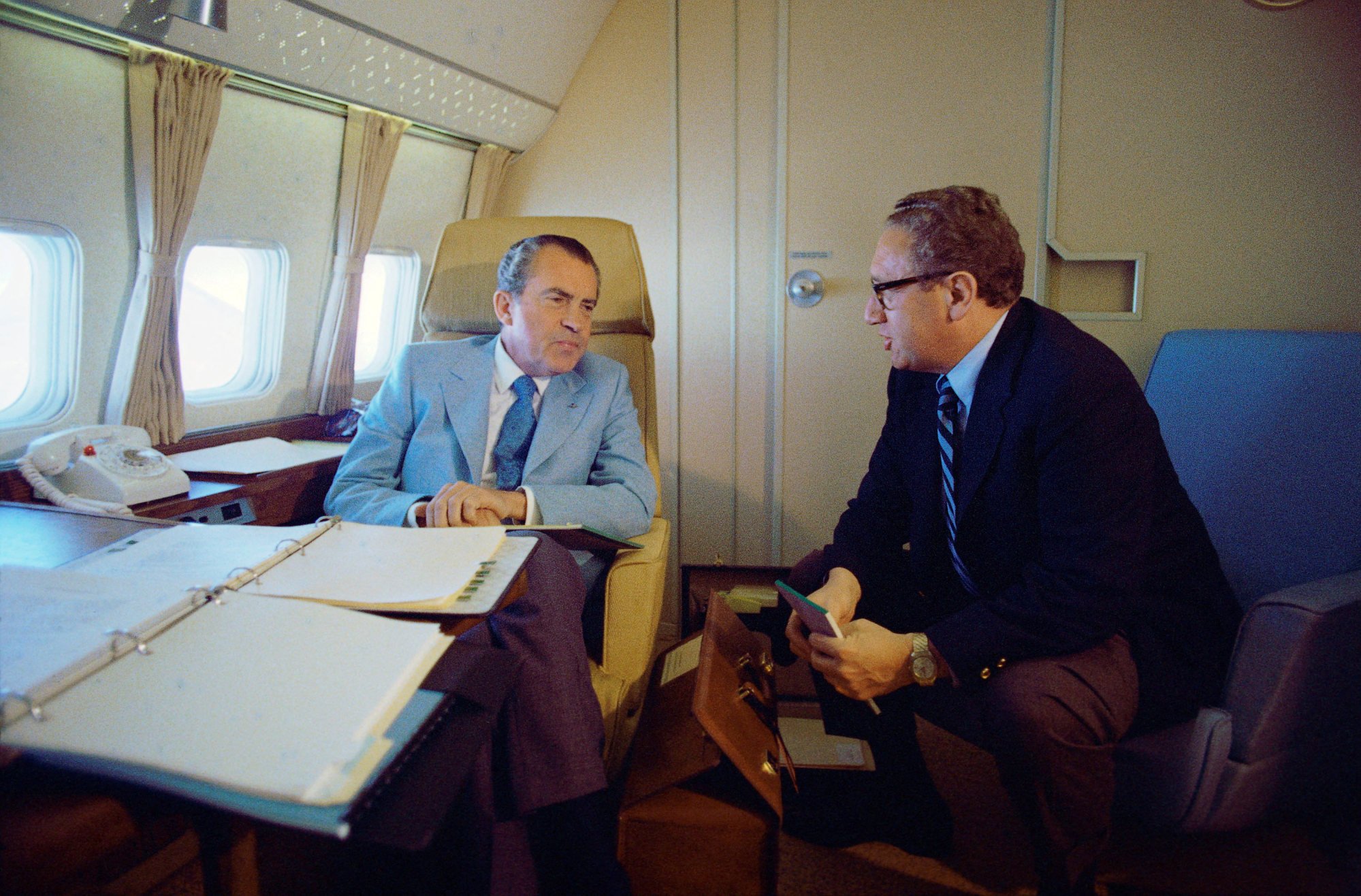
Henry Kissinger, former US secretary of state, dead at 100
- Henry Kissinger was one of the most influential and contentious figures in US foreign policy
- China’s President Xi Jinping spoke fondly of ‘old friend’ Kissinger when hosting him in July
Henry Kissinger, a controversial Nobel Peace Prize winner and diplomatic powerhouse whose service under two presidents left an indelible mark on US foreign policy, died on Wednesday at age 100, according to his geopolitical consulting firm Kissinger Associates Inc.
Kissinger died at his home in Connecticut, the firm said in a statement. No mention was made of the circumstances. It said he would be interred at a private family service, to be followed at a later date by a public memorial service in New York City.
Kissinger had been active past his centenary, attending meetings in the White House, publishing a book on leadership styles, and testifying before a Senate committee about the nuclear threat posed by North Korea.
In his time as a US secretary of state, he dramatically shifted US relations in the Cold War, in Vietnam, and in China.
Kissinger secretly flew to Beijing in July 1971 on a mission to establish relations with China, setting the stage for a landmark visit by President Richard Nixon who sought both to shake up the Cold War and enlist help ending the Vietnam war.
The United States opening to then isolated Beijing contributed to China’s rise to become a manufacturing powerhouse and the world’s largest economy after America.
Kissinger was controversially co-awarded the Nobel Peace Prize for negotiating a ceasefire in Vietnam in 1973. But for many, Kissinger was seen as an unindicted war criminal for his role in, among other events, expanding the Vietnam war to Cambodia and Laos.
Some historians estimate that hundreds of thousands of civilians died in the US aerial bombing campaign.
He was also reviled for supporting coups in Chile and Argentina, greenlighting Indonesia’s bloody invasion of East Timor in 1975 and turning a blind eye to Pakistan’s mass atrocities during Bangladesh’s 1971 war of independence.
After the Watergate scandal brought down Nixon, Kissinger served under his successor, Gerald Ford. In an unprecedented arrangement, Kissinger served both as secretary of state and national security advisory.

After leaving office, Kissinger grew wealthy advising businesses on China and warned against the hawkish turn in US policy towards Beijing.
Heinz Alfred Kissinger was born in Furth, Germany, on May 27, 1923, and moved to the United States with his family in 1938 before the Nazi campaign to exterminate European Jewry.
Anglicising his name to Henry, Kissinger became a naturalised US citizen in 1943, served in the Army in Europe in World War II, and attended Harvard University on a scholarship, earning a master’s degree in 1952 and a doctorate in 1954. He was on Harvard’s faculty for the next 17 years.
Divorced from his first wife, Ann Fleischer, in 1964, he married Nancy Maginnes, an aide to New York Governor Nelson Rockefeller, in 1974. He had two children by his first wife.

